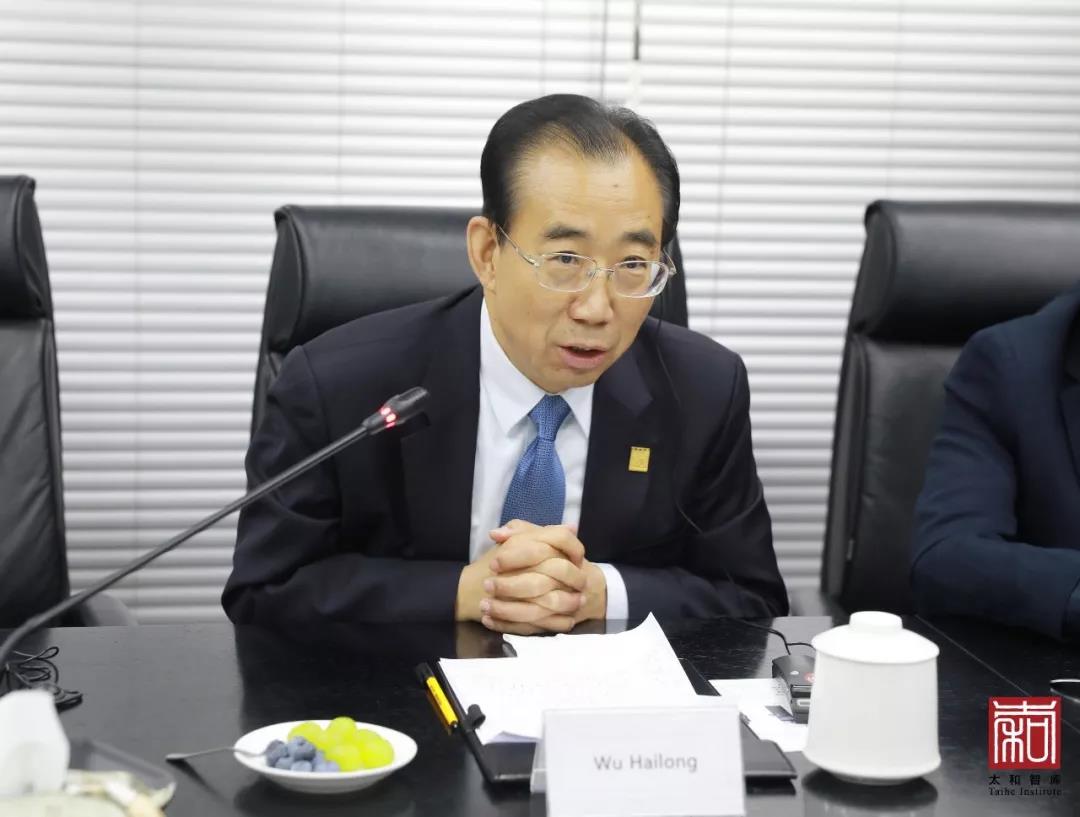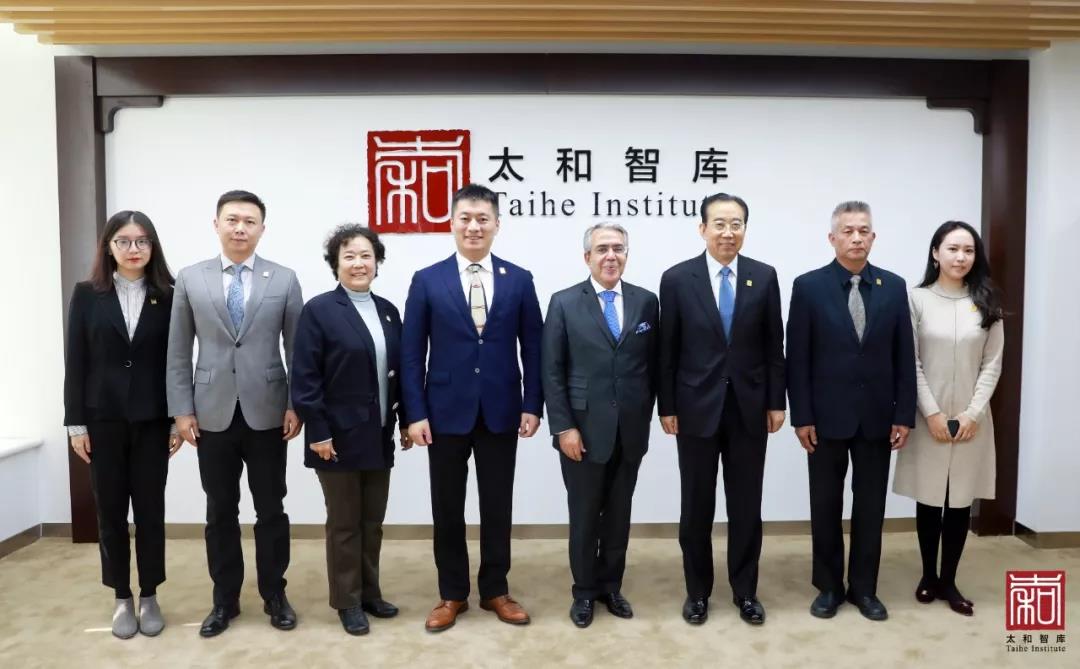Recently, the Algerian ambassador to China, H.E. Ahcène Boukhelfa, visited Taihe Institute and engaged in in-depth exchanges of views with some of its researchers on bilateral relations, China-U.S. competition, the international order and other topics.
I. H.E. Boukhelfa's views on China-Algeria Bilateral Relationship
Algeria is the first Arab country to establish a comprehensive strategic partnership with deep foundations and great potential for development with China. China gave a lot of support to Algeria's national liberation movement, and Algeria also gave strong support to China’s restoration of its rightful seat at the United Nations. The two countries share a profound historical background and a solid foundation for friendship, and should jointly create a good environment conducive to bilateral cooperation and jointly promote renewed development of Sino-Algerian relationship.
China is now Algeria's largest economic and trade partner, but the U.S. and France are still the leading investors, focusing on the energy sector. Chinese companies have been involved in large-scale projects in Algeria since 2013. However, in recent years, due to Algeria’s internal political instability, cooperation has slowed.
Whoever wins the forthcoming presidential election in Algeria, due to be held on December 12th, will inject positive elements into the relationship between the two countries. In the future, it is hoped that China will encourage more enterprises and financial institutions to participate in economic construction and investment in Algeria, further strengthen bilateral economic and trade cooperation, and in particular help Algeria to increase its industrial production capacity. To this end, Algeria will also provide Chinese enterprises with more favorable policies and environment for investment, including a cheap, high-quality, young labor force, an open domestic, regional and international market, as well as the tax-free advantages of exporting to Arab and EU countries. Algeria is set to lift restrictions on foreign joint ventures next year, a move it believes will greatly boost investment and production by Chinese companies.
Creating a comprehensive and good public opinion environment is an important way to promote bilateral cooperation, especially during the crucial period of the forthcoming general election. At the same time, the two sides should work together to strengthen exchanges among the media, think tanks, universities, youth and entrepreneurs.
II. Sino-U.S. Cooperation and New International Order
H.E. Boukhelfa believes that with the development of developing countries and with more attention being paid to their opinions, a new international order is taking shape. At present, the world is in an unstable period of transition between the old and the new order, and the international community should work together to establish a more equitable international order. Sino-U.S. relationship are fundamental to the formation of such a new order, and Algeria will not take sides among the great powers. He firmly believes that whatever resistance happens, China's forward development tide is unstoppable. Any country should accept and adapt to the reality of China's development, and this will bring more opportunities to the world, especially to developing countries.
Experts from Taihe Institute believe that the new international order needs to be jointly selected and shaped by multipolar forces, that it should not and cannot depend on the will and behavior of one or two countries, and that the representation and voices of developing countries should be more clearly heard. China’s rise has changed the development of China-U.S. relations and some mainstream commentators in the United States believe that this is bound to pose a threat to the interests of the United States. In fact, both China and the United States are beneficiaries of the current international order, and China has no intention of challenging the status of the latter. The developmental gap between China and the United States remains large. China's main task is to develop its economy and improve people's standard of living. China still hopes to avoid conflicts and confrontations, to have mutual respect and win-win cooperation with the United States, and has taken the initiative in putting forward the principles of "coordination, stability and cooperation" in China-U.S. relations. Of course, China cannot give up development and dignity by making too many compromises and concessions, and will stick to its fundamental principles. Regardless of the outcome of the next U.S. election, Sino-U.S. relationship are definitely not going to return to the past, and there is no need for this to happen. China and the U.S. must seek a new and appropriate way to deal with bilateral relationship.

Taihe Institute has long been committed to building a platform for international exchanges and enhancing mutual understanding between China and foreign countries. In the future, Taihe Institute will further strengthen its research and exchanges of views in relevant fields, and continue to contribute wisdom and strength to building a "community with a shared future for mankind".
—————————————————————
ON TIMES WE FOCUS.
Should you have any questions, please contact us at public@taiheglobal.org


